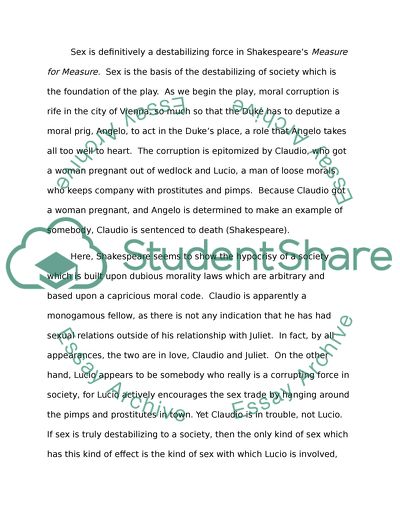Cite this document
(“Sexuality in the Elizabethan plays: Measure for Measure and The Essay”, n.d.)
Sexuality in the Elizabethan plays: Measure for Measure and The Essay. Retrieved from https://studentshare.org/literature/1432065-sexuality-in-the-elizabethan-plays-measure-for-measure-and-the-duchess-of-malfi
Sexuality in the Elizabethan plays: Measure for Measure and The Essay. Retrieved from https://studentshare.org/literature/1432065-sexuality-in-the-elizabethan-plays-measure-for-measure-and-the-duchess-of-malfi
(Sexuality in the Elizabethan Plays: Measure for Measure and The Essay)
Sexuality in the Elizabethan Plays: Measure for Measure and The Essay. https://studentshare.org/literature/1432065-sexuality-in-the-elizabethan-plays-measure-for-measure-and-the-duchess-of-malfi.
Sexuality in the Elizabethan Plays: Measure for Measure and The Essay. https://studentshare.org/literature/1432065-sexuality-in-the-elizabethan-plays-measure-for-measure-and-the-duchess-of-malfi.
“Sexuality in the Elizabethan Plays: Measure for Measure and The Essay”, n.d. https://studentshare.org/literature/1432065-sexuality-in-the-elizabethan-plays-measure-for-measure-and-the-duchess-of-malfi.


